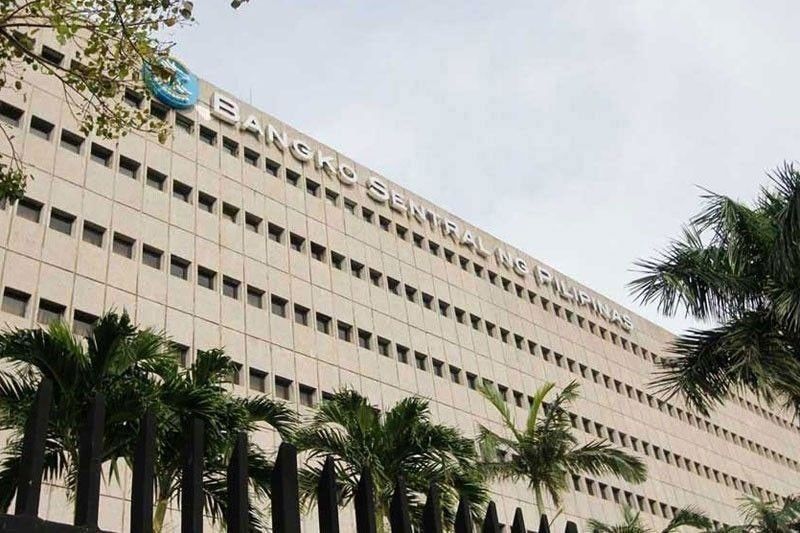BSP may deliver more rate hikes

MANILA, Philippines — Economists are expecting more rate hikes after the Bangko Sentral ng Pilipinas (BSP) started its interest rate liftoff on Thursday as inflation is seen averaging at a high of 5.4 percent this year and 6.9 percent next year if the price of Dubai crude hits $200 per barrel.
Jun Neri, lead economist at Ayala-led Bank of the Philippine Islands, said BPI is now expecting the Monetary Board to raise interest rates by 100 basis points instead of 75 basis points this year as inflation has not reached its peak yet.
“Despite this, we believe the economy has enough cushion in case the BSP decides to hike its policy rate further. Even with a 100-basis-point rate hike this year, the policy rate will still be below historical and pre-pandemic levels,” Neri said.
The BSP delivered a 25-basis-point rate hike, the first in more than three years or since November 2018, bringing the benchmark rate to 2.25 percent from an all-time low of two percent to curb mounting inflationary pressures.
“Furthermore, the impact of rate hikes is usually gradual and the economy has the capacity to absorb slightly higher interest rates especially now that demand is almost back to pre-pandemic level,” Neri said.
The economist of the 170-year-old bank said that a more significant risk to the country’s economic prospects is inflation and the depreciation of the peso, which would further increase the cost of oil that the country imports from abroad on top of the increase brought by the Russia-Ukraine conflict.
Neri said additional pressure on the local currency also comes from the faster pace of policy tightening by the US Federal Reserve.
“Hiking the policy rate will serve as a stabilizing tool that could temper the depreciation of the peso. Also, this will likely prevent a substantial decline in (US) dollar reserves that could lead to more volatility in the local markets,” Neri said.
According to Neri, raising the policy rate in this meeting has mitigated the risks that might have worsened without any adjustments in monetary policy.
“The possibility of bigger rate hikes and intermeeting hikes would have increased if the BSP did not hike on Thursday. With the Fed likely to hike by 100 basis points in the next two months, the differential of the Fed and BSP policy rates by end of July would be 50 basis points, assuming the BSP will only start hiking in June,” Neri said.
ANZ Research has penned a more aggressive tightening cycle, wherein the BSP is seen raising the overnight reverse repurchase rate to four percent by the first quarter of next year.
According to ANZ, the central bank has embarked on a comprehensive normalization program after raising key policy rates by 25 basis points, the settlement of the P300 billion provisional advance by the national government, and the reconfiguring of the window for purchasing government securities into a regular liquidity facility.
ANZ said the BSP raised its inflation forecasts to 4.6 percent for 2022 and to 3.9 percent for 2023 due to persistent inflationary pressures, while second-round impact became more pronounced.
“Based on these pressures, we expect the BSP to hike rates until the first quarter of 2023 when a terminal rate of four percent will be reached,” ANZ said.
Based on the latest inflation path, BSP managing director Zeno Ronald Abenoja said that average inflation could peak and average slightly above five percent in the second quarter before decelerating back to the central bank’s two to four percent target range by the second quarter of next year.
Aside from the recently approved wage hikes, Abenoja said upside pressures to inflation include higher global non-oil prices, the pending jeepney fare petitions, higher fish prices as well as the prolonged pork shortage.
In its latest assessment on the impact of alternative Dubai crude oil price, Abenoja said inflation could range average between 4.6 percent if oil price averaged $100 per barrel to as high as 5.4 percent if it hits $200 per barrel this year.
For 2023, Abenoja said inflation may range between four percent if oil prices average $100 per barrel to as high as 6.9 percent if it hits $200 per barrel.
“The volatility of global oil prices continues to present a risk to the inflation outlook,” he said.
Abenoja said the scenarios only consider the direct effects and did not incorporate any potential second-round effects on transport fares, food prices and wage increases.
- Latest
- Trending





























